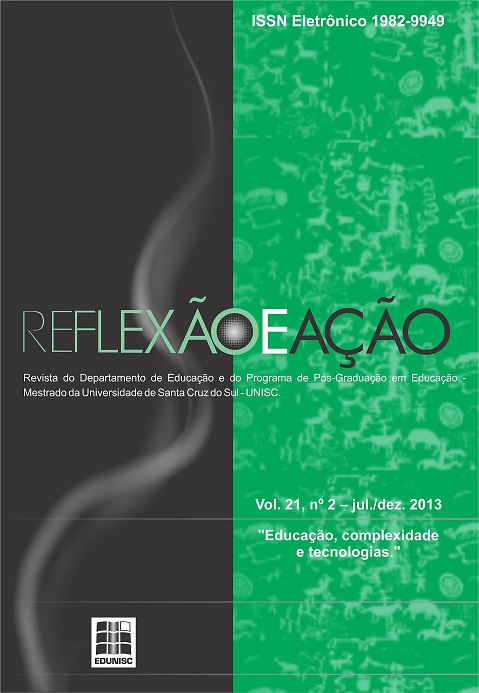COMMUNICATION AND INFORMATION TECHNOLOGY (CIT), COLLABORATIVE AUTHORSHIP AND KNOWLEDGE PRODUCTION IN TERTIARY EDUCATION
DOI:
https://doi.org/10.17058/rea.v21i2.3813Keywords:
Virtual Learning Environments, Knowledge production, PBWorksAbstract
The present article approaches a research developed in the period of 2009-2012 along with licensees from Universidade Federal do Rio Grande do Sul that analyses the role of Virtual Learning Environments as tools of interaction and their effects in the production processes of public knowledge student involved from the perspective of collaborative authorship. It seeks to identify their potential as curriculum, learning and affective tools that enable the construction of qualitatively different relationships. It was sought to achieve these objectives throughout the analysis of the data generated by questionnaires, completing related aspects of the digital resources use in its academic path. We work with 28 selected reports, confronting these data to the theoretical matrix – Cesar Coll, Luciana de Souza Gracioso, Gustavo S. Saldanha and José Armando Valente. This work revealed that the use of other tools as the Virtual Learning Environments enabling the creation of learning dynamics as well as new ways of interaction between the participants modifying partially its learning processes from the offered possibilities.Downloads
Downloads
Published
How to Cite
Issue
Section
License
The submission of originals to this journal implies on the transference, by the author(s), of the printed and digital publishing rights. The author´s rights to the published articles are the author´s, the journal has the rights over the first publication. The author(s) can only use the same results in other publications, indicating clearly that this journal was the original publisher. Since we are an open access journal, the free use of articles is permitted for educational and scientific applications, as long as they inform the source according with the CC-BY license from Creative Commons.


